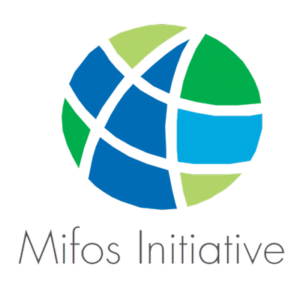October 16, 2014 Take a Moment to Applaud Financial Co-Operatives
Join nearly 208 million credit union members in 103 countries who recognize and celebrate the credit union difference by taking a moment to reflect on the financial co-operatives history and to ponder its achievements.
International Credit Union (ICU) Day® has been celebrated on the third Thursday of October since 1948. The day is recognized to honor those who have dedicated their lives to financial inclusion, recognize the hard work of those working in the credit union / SACCO / Co-Operative community and show members appreciation.
This year’s ICU Day will take place on Oct. 16, 2014. Its theme, “Local Service. Global Good,” emphasizes credit unions’ positive impact in their communities and around the world.
“ICU Day was established to acknowledge credit unions’ strong base in their communities, both local and global,” said Brian Branch, World Council president and CEO. “This year’s theme champions the credit union model by shining light on the industry’s support of charity causes at the local, national and international levels.”
Credit Unions: A History of Community Ownership and Support
This is the story of an idea. A simple idea: that people could pool their money and make loans to each other.
It’s the credit union idea, and it evolved from the cooperative activities of early 19th century Europe. The first of these cooperatives was an 1844 marketing cooperative organized by a group of workers in Rochdale, England. That same year in Germany, Victor Aime Huber began developing and publicizing some of the early European cooperative theories. The idea of credit societies was a part of this effort.
Credit Societies: The Birth of Credit Unions
Moved by the crop failure and famine that had devastated Germany in 1846–1847, Hermann Schulze-Delitzsch and Friedrich Wilhelm Raiffeisen created the first true credit unions in the mid-19th century. After organizing a cooperatively owned mill and bakery, Schulze-Delitzsch founded the first “people’s bank” in 1852 to provide credit to entrepreneurs in the city. Raiffeisen had established a credit society in Flammersfeld, Germany in 1849 that depended on the charity of wealthy men for its support. He remained committed to that concept until 1864, when he organized a new credit union for farmers along the principles of cooperative interdependence, a community-first mentality and a volunteer management structure that are still fundamental today.
The credit societies in Germany, and similar institutions founded by Luigi Luzzatti in Italy, were the forerunners of the large cooperative “banks” which abound in Europe today.
The Idea Spreads
Over the years, credit unions spread to communities around the world. In the early 1900s Alphonse and Dorimene Desjardins started a credit union (caisse populaire) in Lévis, Quebec. Shortly thereafter, Alphonse, along with Americans Edward A. Filene and Roy F. Bergengren, helped establish credit unions in the United States.
Financial Co-Operatives, regardless of name, can be found in every country on every continent of the world. The name may be SUSU, SACCO, Savings Group, Co-Operative or Credit Union – the philosophy is the same, “People Helping People.”
How the Mifos Initiative Helps
Mifos X is a very 21st century software design. As the industry’s only open platform for financial inclusion, Mifos X provides the core functionality needed to deliver financial services to the 2.5 billion poor and unbanked. Mifos X can be deployed in any environment: cloud or on-premise, on or offline, mobile or PC. It is extenable enough to support any product, service or methodology. For any organization, big or small, it will provide the client data management, loan and savings portfolio management, integrated real time accounting and social and financial reporting need to bring digital financial services in a modern connected world.
It contains both the common platform for our community to build off and extend, and the Community App, our showcase product that can used out of the box. Both are completely open via the Mozilla Public License 2.0.


Leave a Reply
Want to join the discussion?Feel free to contribute!